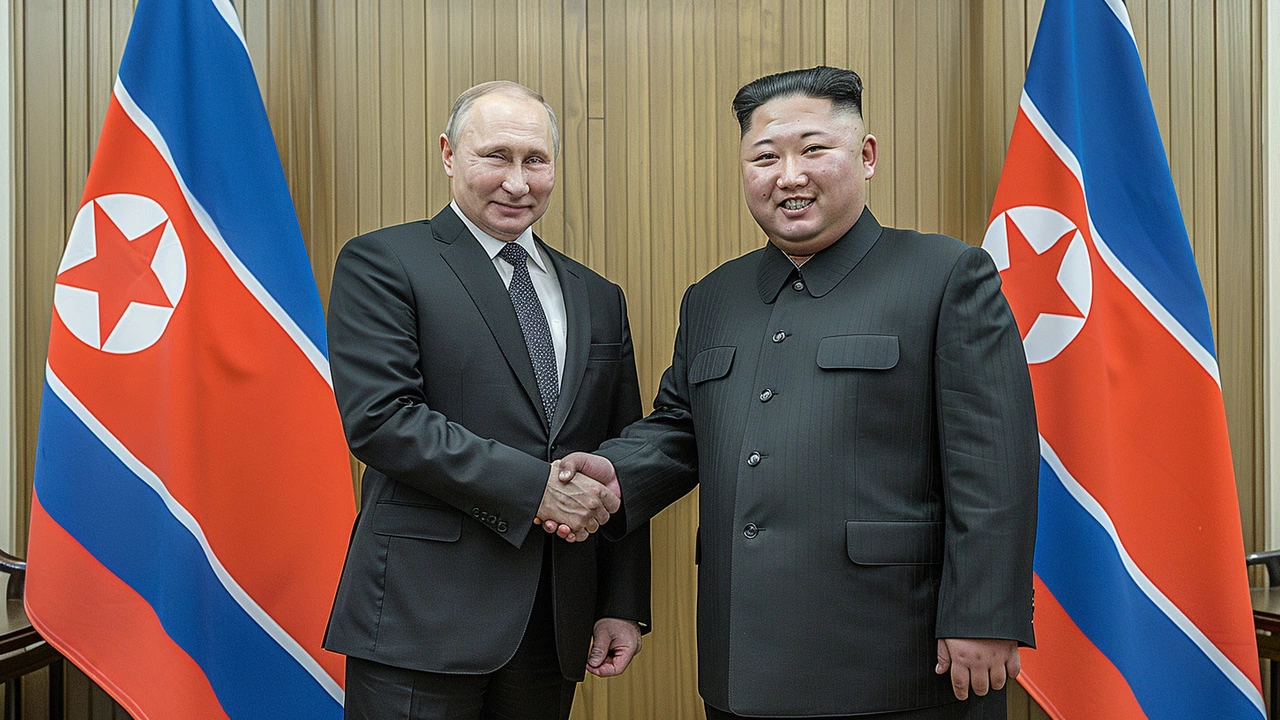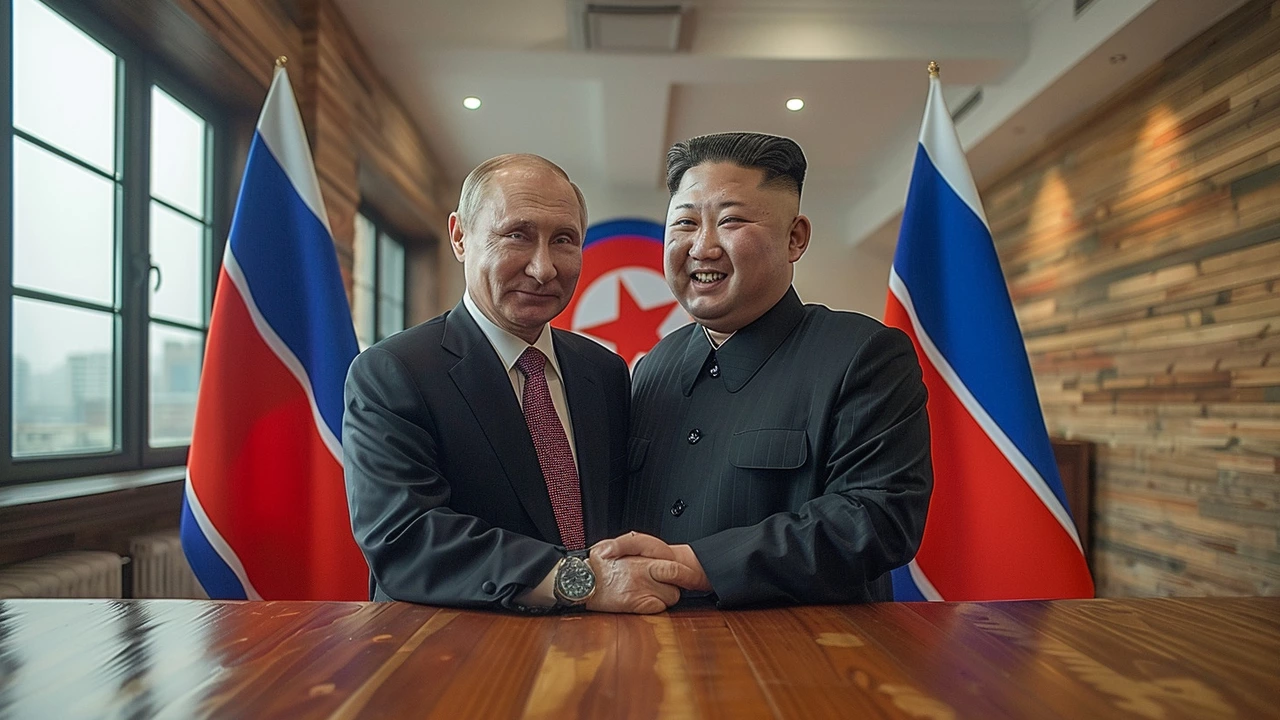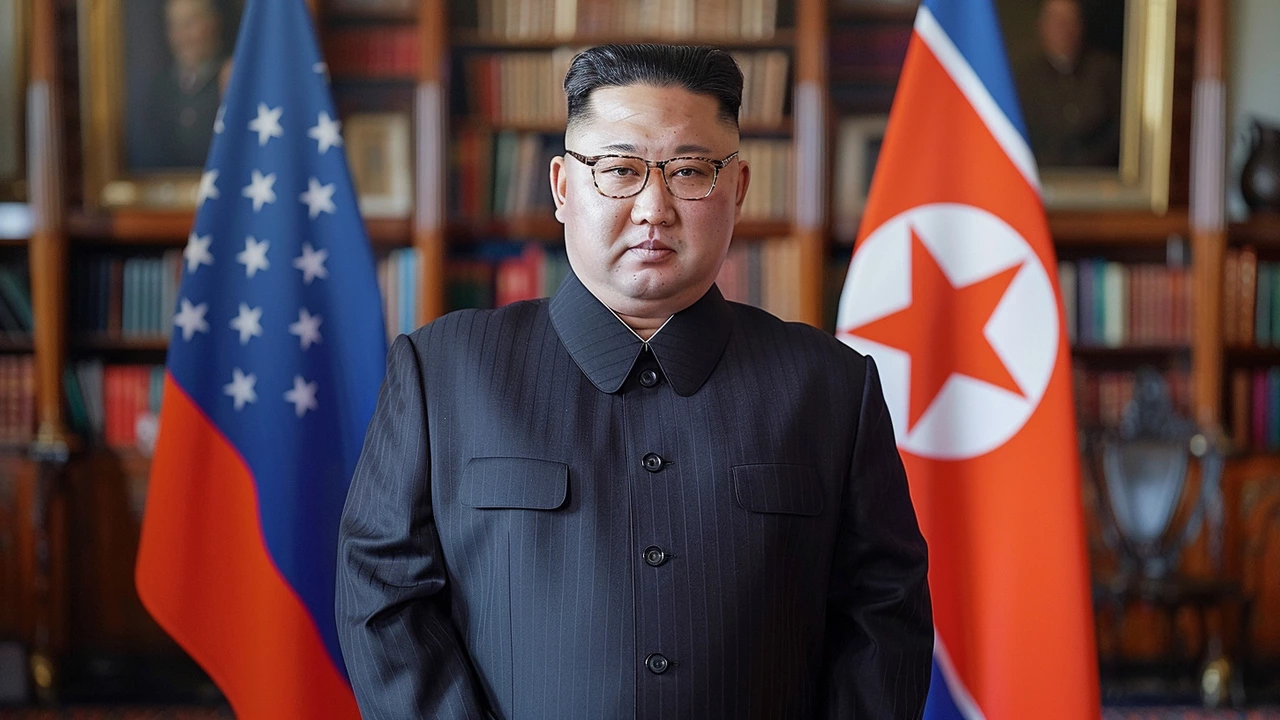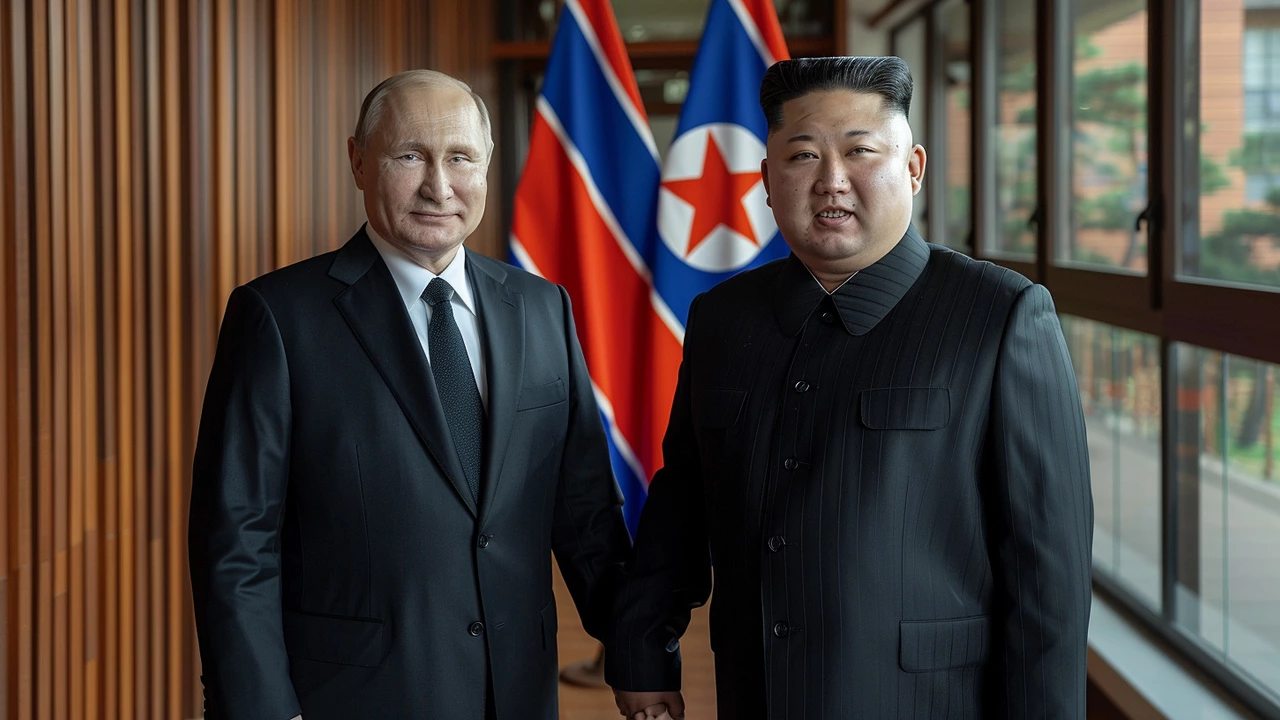Kim Jong Un's Enduring Pledge to Russia
In a meeting that has garnered global attention, North Korean leader Kim Jong Un extended his steadfast support for Russia's invasion of Ukraine to Russian President Vladimir Putin. The leaders convened in Pyongyang to bolster their already complex relationship, focused primarily on economic and military cooperation. This meeting, significant in terms of both geopolitics and symbolism, represents a formidable stance against what both nations deem 'imperialist hegemonistic policies' led by the United States and its allies.
The reception in Pyongyang for Putin and his entourage was nothing short of spectacular. Huge crowds lined the streets, waving flowers and flags as Putin's motorcade passed. This enthusiastic public response underscores the deep bond between Russia and North Korea, a relationship that has weathered various geopolitical storms over the decades. Kim Jong Un didn't miss the opportunity to highlight Russia’s crucial role in maintaining global strategic equilibrium, portraying their alliance as a pillar of international stability amidst growing Western pressures.

Military and Economic Strengthening
One of the core objectives of Putin’s visit was to cement a formal agreement that would deepen the military and economic ties between Russia and North Korea. The pact, still in its preliminary stages, aims to create a robust partnership framework designed to counteract what both nations see as Western oppression. Senior Russian officials such as Deputy Prime Minister Denis Mantrurov, Defense Minister Andrei Belousov, and Foreign Minister Sergey Lavrov flanked Putin during the talks, signaling the high stakes and strategic importance of the meeting.
The agreement, once finalized, is expected to involve the sharing of resources and technologies. Additionally, it could open the door to more direct military aid, which has raised international concerns. Both the United States and South Korea have alleged that North Korea has been providing artillery, missiles, and other forms of military equipment to Russia—a claim vehemently denied by both Moscow and Pyongyang. However, these accusations add another layer of complexity to an already tangled web of geopolitical tensions.
Support for Russia’s 'Special Military Operation'
Kim Jong Un was unequivocal in his support for Russia's 'special military operation' in Ukraine. Expressing solidarity with the Russian government, its armed forces, and its people, Kim assured Putin that North Korea stands ready to offer full support. This pledge is more than mere rhetoric; it signals a readiness to collaborate on multiple fronts, including potential military engagements and intelligence sharing.
For Putin, this solidarity is invaluable. With Western nations increasingly tightening their sanctions and fortifying support for Ukraine, Russia finds itself in need of allies. North Korea, with its notorious disregard for international sanctions and its own robust military capabilities, is a potent partner. This relationship, however, is profoundly unsettling for many countries already wary of North Korea’s nuclear ambitions and missile programs.

Geopolitical Implications
The implications of this meeting are far-reaching. With the conflict in Ukraine intensifying and North Korea’s nuclear weapon and missile activities engendering growing global condemnation, this alliance could dramatically shift the balance of power. It's not just a bilateral arrangement but part of a larger geopolitical chessboard where traditional alliances and enmities are continually realigned.
If North Korea indeed supplies military assistance to Russia, it would mark a significant escalation. Such a development could lead to increased sanctions and further diplomatic isolation for both nations. Despite these potential repercussions, North Korea appears undeterred, confident in its ability to withstand external pressures due to the security guarantees likely provided by Russia.
Concerns Over Arms and Missiles
The potential arms arrangement between Russia and North Korea has understandably raised eyebrows worldwide. While both nations deny any formalized military exchange, the timing and context of Putin’s visit suggest otherwise. The speculated trade-off involves North Korea providing Russia with vital munitions, including artillery and missiles, in exchange for economic assistance and technology transfer.
This possible deal comes at a time when Putin is seeking alternatives to circumvent the stringent sanctions imposed by Western entities. For North Korea, receiving advanced technologies from Russia could significantly bolster its already alarming missile programs, a prospect that would undoubtedly trigger heightened tensions with its southern neighbor, South Korea, and the broader international community.
Despite these concerns, the talks between the two leaders proceeded with a sense of mutual understanding and strategic intent. The atmospheres, marked by camaraderie and shared geopolitical aspirations, highlighted the depth of the alliance. Kim Jong Un's praise for Russia’s role in maintaining global strategic stability resonated deeply, signaling a united front against perceived Western hegemony.

A New Era of Cooperation
As the meeting concluded, the world was left to contemplate the repercussions of this reinforced alliance. With Kim Jong Un’s overt endorsement of Russia’s actions in Ukraine and Putin’s warm reception and strategic promises, a new era of cooperation seems to be on the horizon. This partnership could potentially alter the geopolitical landscape, affecting not just the regional balance of power but also the global order.
While it remains to be seen how this developed agreement will be realized, the signals are clear: North Korea and Russia are ready to face the world, united. For international observers and stakeholders, particularly those opposed to this newfound solidarity, the challenge will lie in navigating this complex and evolving alliance while safeguarding their interests and maintaining global stability.
